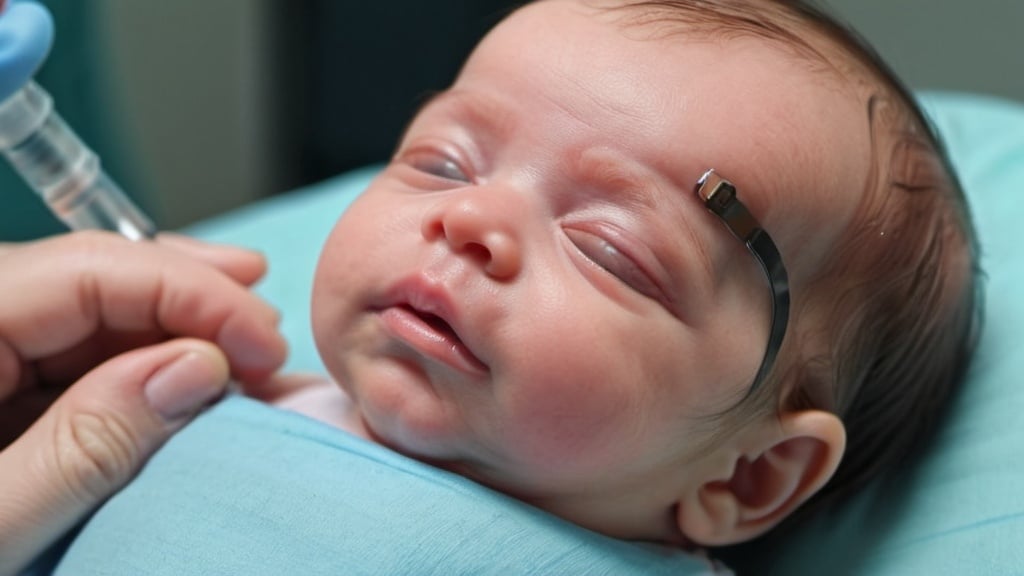1. Introduction
Discuss what will occur prior to the actual examination in order to reassure the parents. Understanding the monitoring rationale for each problem will enable parents to recognize signs and symptoms for themselves. Mothers need to have a great deal of reassurance. Encourage parents to ask questions, any questions, about concerns they have, even about minor things. If and when any answer appears strange or confusing, clarify the response so confusion can be avoided. With knowledge, parents can better anticipate their needs before they develop and provide the best care for their newborn with as much extra rest and confidence as humanly possible.
There are concerns that most mothers and fathers have concerning their newborns. Being a parent either for the first time, or having several children does not mean you will have any less concerns about your child, only that you have heard more of the issues, and you can prepare and deal with them more readily. Concerns can be particularly pronounced following a hospital delivery; it is the best time to discover you have a trusted, supportive physician ready to guide you through the experiences that come with child care. Newborns need to be examined after birth, either by a pediatrician or a family physician, in order to monitor both their health and development.
1.1. Purpose of Newborn Check-Ups
Fortunately, a newborn check-up can reassure you that everything is just fine and for the next 5-6 weeks the list disappears. So what’s the purpose of this newborn check-up? This is the time period when the doctor can identify any serious disease or complication that the child may have after delivery. This is the anticipated time that 95% of the babies will have a visit with the physician before the next well-child visit. There are many questions that need to be asked of the parents because the whole truth is not always revealed. Some children need to be assessed for high bilirubin levels so they can be avoided or treated. Immunizations need to be reviewed and discussed. Red flags or early warning signs for different diseases can be identified. These guidelines were driven by experts who revised them every two years. The last revision was in 2019. They included guidelines from the American Academy of Pediatrics, The American College of Obstetricians and Gynecologists and the American Academy of Family Physicians. Management errors are very common in healthcare, possibly up to 17% of the time. Quality of care actually depends on the system and the culture of the team providing it. Small deficiencies need to be identified and corrected so that better birth outcomes can occur.
All new parents are eager to show off their new family addition and are proud of their little one. All is well when they leave the hospital and are given a list of 16 things that need to be done now that their newborn is 5 days old. Along with them comes the list of requirements for their first newborn check-up. When the list is handed it is time to say, “Hey, wait a minute.” Parents need to be reassured that everything is perfectly normal. Everyone is looking fine. Unfortunately, that is often not what occurs and MDs need to take the extra minute to ensure that the parents are adjusting. Most people don’t notice how difficult their life has become. Stressed out people can act like “headed for the hill, so get out of my way”. You are not alone and don’t need to feel like it. Before you begin, all office visits with the MD, MSNO recommends writing down, with pen and paper, all of the concerns you want to address with the doctor. Start with your top 3. You also need to be the squeaky wheel and have your concerns heard. Many physicians are frustrated about their short office visits and genuinely want to help, but are also stuck on a treadmill.
2. When to Schedule a Newborn Check-Up
Normal visits are usually done at 2 weeks, 1 month, and 2 months of age. During a normal visit, the pediatrician tracks the baby’s growth and observes the baby’s examination over time as the baby matures. It is very important to be consistent with these baby appointments. Call the pediatrician for any suspected illness and make an appointment if directed by the pediatrician. Please try to use the same pediatrician for all the newborn check-ups because the pediatrician already knows the mother’s history and the newborn’s care in the hospital.
It is very important to schedule a newborn check-up within the 3-5 days of discharge for every baby discharged less than 48 hours after delivery. The purpose of this newborn check-up is to assess the baby’s feeding and weight, jaundice, and the baby’s progress since birth. Newborn jaundice contributes to a significant proportion of newborn readmissions to the hospital, so a check for jaundice in all newborns before they are 7 days old is very important. The pediatrician will provide specific recommendations if your baby needs earlier or later appointments based on a variety of factors.
2.1. First Check-Up After Birth
Before they left the bedroom, nurses will visit after your baby is born. This will help you convince yourself that you can hold a baby. In the hospital, the next check-up on the baby takes place. Generally, this is the day the baby is to be released from the hospital. It could be done a day later if the baby is premature. Check-ups at health centers should also be scheduled after the baby is released from the hospital or your pediatrician. These appointments should be scheduled twice a week, two weeks later, one month, and then two months later, and then every three months until the age of one. For the rest of the year and beyond, your baby will have regular check-ups with the doctor. Regular inspections give you the chance to get all the necessary vaccinations and check how well your baby grows. These visits often provide a nice reminder of your baby’s lifestyle and are a perfect time to ask any concerns about caring for your baby.
First of all, baby’s feet should be checked for injury or other conditions like clubfoot. Your baby’s body and skin, muscles and bones, and development should be assessed. Your doctor should also check the sucking and chewing reflex, the rooting reflex, the tonic neck, and grasp reflexes. This will give your doctor a good indication of the reflexes and brain-labeled pathways. No time in the womb can safely match the time there, where they are well-nurtured and very healthy for all normal baby’s needs. Now your doctor listens to the heart and lungs. In general, after being away from the womb for a few days, your baby should be used to sleeping in a regular environment where there are typical household noises and not total quiet. Just to be sure there is no blood to the brain, your doctor should check the top of your baby’s head.
3. Common Concerns About Newborn Check-Ups
As the car drives up the steep driveway, Dad tries to remember how to answer the 50 most frequently asked questions asked of him at work, all nurses and stay-at-home travelers. But while feeding, napping, and burping are not as problematic as they had feared, they have so many questions about what to expect from the newborn check-up for which they will reach the doctor’s office tomorrow. For those who may have similar questions, this is a compilation of some of the most common questions we answer every week at the AAP Pediatric Nursing Department from the staff we assist.
The tricky days and nights of late pregnancy and a dramatic delivery are past, and a bittersweet balance is settling in – along with bear hugs and a dozen roses. But already the checkered blanket from the maternity ward is on the floor of the car, as on the way home new parents are looking for the perfect features they crave most. And by the time they stop at another traffic light and take a furtive look at the car seat in the back, the sensational amazement they felt about the sweet white swaddling in their arms has vanished and been replaced by real worry, and the single desire for a ‘book of baby know-how’ is a bibliophile’s dream.
3.1. Vaccinations
To help protect your baby and others, remember to wash your hands with soap and water, and regularly clean and disinfect areas at home.
Will my baby’s crying increase after the vaccination is given? – Some newborns have more crying, are more fussy, and feel a little swollen at the site where the shot was given. – You can expect your baby will be more fussy the day of receiving the vaccination. To help her sleep better that night, you can give her non-prescription medicines to help with fever, and apply cool clothes to the sore areas.
Is it safe? The vaccines may cause fever or pain in the arm or leg where the shot was given. To help prevent some of these side effects, you can: – Give your baby non-prescription medicine. – Do NOT give aspirin to children under the age of 18 years. – Apply cool cloths to the sore area. – Dress your baby in loose clothes. – Talk to your doctor if you are concerned or have any questions about the vaccines.
This schedule is subject to change and varies slightly depending on when your child received their first vaccine.
What vaccines will be given? – The first dose of Hepatitis B vaccine is given in the hospital. Generally, at the two-month check-up, your child will receive: – DTaP (Diphtheria, Tetanus, Acellular Pertussis) Vaccine – Minimum age: 6 weeks. – Td is only for children 7 years or older. This does NOT apply to your newborn. – IPV (Inactivated Poliovirus) Vaccine – Minimum age: 6 weeks. – Hib (Haemophilus Influenzae Type b) – Minimum age: 6 weeks. – Rota Attenuated Human Rotavirus Vaccine – Minimum age: 6 weeks. – PCV7 (Pneumococcal Conjugate Vaccine) – Minimum age: 6 weeks. – Bexsero – planned for when the child is at least 6 months old. – Seasonal Flu Vaccine should be offered to children 6 months and older in the fall and winter.
Newborns | Newborn Week | Taking Care of Mom | Twins, Triplets, Multiples | 4 Month Visit | 7-9 Month Visit | 15-18 Month Visit | 2 Year Visit | 3 Year Visit Vaccinations
What parents need to know: Preferences differ from family to family, but for parents who worry about delaying vaccines for a month or two, it gives their newborn time to recover from the very intense day/year they have just had. It also prevents them from experiencing 2 painful things in a very short amount of time.
4. Preparing for a Newborn Check-Up
– Not feed baby before check-up. – Expect a weight check. – Keep several feeding sessions short. – Bring diapers and formula if needed. – Ensure baby didn’t skip a meal. – Avoid medicines.
New parents may have many concerns about that first check-up. Those worries are justified. They have never been seen in public with their new baby before and aren’t sure what to expect. However, it doesn’t have to be a worrisome event. Parents just need to show up and bring their newborns to the doctor for the check-up. However, if parents want to be prepared and know what to expect, it’s possible to prepare for that day. For a successful newborn check-up, it’s important to:
The arrival of a baby is a special event that brings family and friends together. However, that is not the last big day when it comes to having a newborn. Another event that brings family members together for a special day is when a new mom takes her newborn baby to the doctor for the first check-up. Newborn check-ups are the time to ensure a baby is healthy and get baby on the right path to have great health. However, it’s also a special event where mom needs to be ready with the right items in hand.
4.1. What to Bring
And most important, do you know with whom you will follow up for your baby’s 2-week newborn check? Choose now and ensure that you can be seen at that time. Your baby will need to be seen by that date, so it is important to have that follow-up appointment scheduled and a doctor chosen for the follow-up visit much before the actual visit to ensure your baby is seen without any delay in care. If you do not have a pediatrician, ask your obstetrician if the baby can be seen in their practice. If not, consider a pediatrician near where you live. Call to confirm that they accept your insurance, want to take care of your baby, and see your baby when you need an appointment.
Be prepared also to provide the doctor with important information. Did you receive the results of the newborn hearing test, and were both ears tested? Did your baby have a lab test for jaundice/bilirubin levels? If so, was the test performed in the birth hospital, and were results waited until your doctor gave you the okay to leave the hospital with your newborn?
You should bring the baby’s car seat, diapers, and milk, a change of clothes, and a pacifier. When you have packed to leave the house, remember you need also to take some other personal items: a bottle of water, your purse, the baby’s birth record, a two picture ID like a driver’s license and other personal effects to take care of your own needs at the doctor’s office.
5. Conclusion
Newborn check-ups are designed to ensure that your baby is healthy, strong, and successful. This essential time is used to help educate on care processes, provide essential information that parents need to know, and help a medical professional gauge the general health of a baby. In this discussion, we have addressed concerns related to check-ups, which include accessibility, frequency, pain, and what if parents miss crucial examinations. It must be noted that these scheduled check-ups are integral to acquire the support necessary to care for, raise, and develop a child. Preventative care leads to early intervention which can be of great benefit to the healthy development of a baby. Attending scheduled check-ups are the protective factor that help keep babies healthy, vital, and the parents up-to-date on specific needs for each child as they grow and mature. Ensure that your precious little baby gets off to the best start by attending those all-important newborn check-ups.
Interested in learning more? Visit us for further details
References:
Mutanu, L., Gupta, K., and Gohil, J. “Leveraging IoT solutions for enhanced health information exchange.” Technology in Society, 2022. [HTML]
Amri, S. and Simbolon, R. S. “Enhancing Maternal and Infant Health: Improving Healthcare Access through Cultural Sensitivity and Community Engagement in Tigalingga, Dairi Regency.” Law and Economics, 2023. ristek.or.id
Alzúa, M. L. and Katzkowicz, N. “Pay for performance for prenatal care and newborn health: Evidence from a developing country.” World Development, 2021. econstor.eu
Khekade, Harshal, et al. “Preconception care: a strategic intervention for the prevention of neonatal and birth disorders.” Cureus 15.6 (2023). nih.gov
Ramesh, M. R. “Maternal and Child Health: A Comprehensive Review.” kmf-publishers.com, . kmf-publishers.com
Islam, M. A. and Tabassum, T. “Does antenatal and post-natal program reduce infant mortality? A meta-analytical review on 24 developing countries based on demographic and health survey data.” Sexual & Reproductive Healthcare, 2021. [HTML]
Briggs, Rahil D., et al. “Population Health Opportunities in Pediatrics to Support Infant and Early Childhood Mental Health Promotion and Prevention: The HealthySteps Model.” WAIMH Handbook of Infant and Early Childhood Mental Health: Biopsychosocial Factors, Volume One. Cham: Springer International Publishing, 2024. 421-442. [HTML]
Salomonsson, Björn, et al. “Short‐term psychodynamic infant–parent interventions at Child health centers: Outcomes on parental depression and infant social–emotional functioning.” Infant mental health journal 42.1 (2021): 109-123. wiley.com
Nishimwe, Clemence, Gugu G. Mchunu, and Dariya Mukamusoni. “Community‐based maternal and newborn interventions in Africa: systematic review.” Journal of Clinical Nursing 30.17-18 (2021): 2514-2539. wiley.com
Saira, Amir, et al. “Factors associated with non-utilization of postnatal care among newborns in the first 2 days after birth in Pakistan: a nationwide cross-sectional study.” Global health action 14.1 (2021): 1973714. tandfonline.com
Keywords: top concerns about newborn check-ups, newborn health check-up questions, common issues in newborn assessments, addressing concerns during baby check-ups, pediatrician advice for newborns, newborn wellness visit concerns, baby check-up FAQs, important newborn check-up topics, newborn healthcare worries, addressing parental concerns about newborns.






